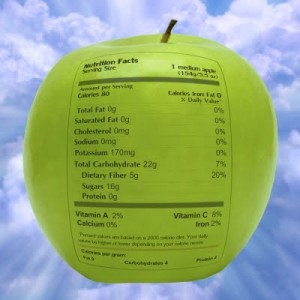
Diabetes, We Can Beat It!
Did you know?
- Over 200,000 New Zealanders have Type 1 or Type 2 diabetes; and over 1.7 million Australians have diabetes and half don’t know it (they have undiagnosed Type 2 diabetes)
- An estimated 275 Australians develop diabetes every day
- Diabetes is the sixth leading cause of death in Australia
 In order to engage millions of people worldwide in diabetes advocacy and awareness, World Diabetes Day was created by the International Diabetes Federation and the World Health Organization and is celebrated annually.
In order to engage millions of people worldwide in diabetes advocacy and awareness, World Diabetes Day was created by the International Diabetes Federation and the World Health Organization and is celebrated annually.
It is easy to think we know all about diabetes, but diabetes is way more complex than what we think. At USANA, we care about the health of our community and so, it’s worth our while to take the time and refresh our knowledge on this massive health threat.
What is diabetes?
Diabetes is a group of metabolic diseases in which a person has high blood sugar, either because the body does not produce enough insulin, or because cells do not respond to the insulin that is produced. The classical symptoms of diabetes are polyuria (frequent urination), polydipsia (increased thirst) and polyphagia (increased hunger). However, in some cases there are no visible symptoms, making diabetes difficult to detect.
There are various types of diabetes: Type 1, Type 2 and Gestational diabetes but the majority of diabetes falls into Type 2, which can be successfully managed with a healthy diet and healthy lifestyle – and this is how frustrating the situation is – while Diabetes is controllable, it is still a leading cause of death in our community! While knowledge and advice about diabetes is so accessible on the internet these days, people still do not follow the advice. No wonder the theme of this year’s World Diabetes Days is defined as Diabetes Education and Prevention. Following advice and turning it into action is the key to winning the battle!
Having said that, it is important to clarify several myths:

Myth #1: Diabetes has nothing to do with me, because I don’t have a family history and I am young.
The fact is that anyone who has an inactive lifestyle and an imbalanced diet is at risk of diabetes, regardless of age, gender or nationality. Also, recent statistics show there is an increase in Type 2 diabetes in younger people. Therefore, don’t take it for granted that you are always the lucky one!
Myth #2: As long as I avoid consuming excess sugar from food, I am safe from being diabetes.
 First, Diabetes isn’t just caused by sugar intake. For example, obesity is known to increase the risk of developing diabetes. Second, talking about sugar, there are lots of hidden sugars, such as sucrose, glucose and honey. They can raise blood sugar levels in a similar way to plain white sugar. Also, packaged products can contain high amounts of concentrated sugar. We’ve got some dietary recommendations for diabetics here:
First, Diabetes isn’t just caused by sugar intake. For example, obesity is known to increase the risk of developing diabetes. Second, talking about sugar, there are lots of hidden sugars, such as sucrose, glucose and honey. They can raise blood sugar levels in a similar way to plain white sugar. Also, packaged products can contain high amounts of concentrated sugar. We’ve got some dietary recommendations for diabetics here:
- Eliminate all grains and dairy products
- Eat low-glycemic index (GI) meals and snacks to avoid peaks and drops in blood sugar. Products from USANA’s healthy food range are good choices
- Eat only low sugar fruits in moderation and low sugar fruits include all berries, under-ripe bananas, tart apples and firm pears
- Avoid products containing high fructose corn syrup. Being label savvy plays an important role here. You must educate yourself on ‘hidden sugars’ and look for them when shopping.
- Strictly avoid damaged fats (trans fats), deep fried foods, processed oils and even margarine
- Drink plenty of pure water daily, approximately 8-10 glasses per day
Myth #3: My parents have diabetes; it is in my genes, so I can do nothing about it.
That sounds a bit pessimistic, doesn’t it? As mentioned above, diabetes Type 2 is preventable, if you have a healthy dietary and lifestyle. Apart from the eating tips from Myth #2, you can try following lifestyle recommendations:
- If you do lead an unhealthy lifestyle, it’s worth getting a regular blood glucose test
- Engage in regular physical activity. You can begin exercise gently with just a short walk every day and increase the distance daily until your fitness levels rise
- Get plenty of good quality sleep (8-9 hours each night), to get a strong immune system and overall good health
- Smokers are more likely to develop diabetes than non-smokers, so give up smoking now
- Monitor your weight to make sure you maintain a good Body Mass Index (known as BMI). Follow this link to work out your BMI
- Reduce toxins in your environment; gasoline, paint, solvents, cleaners, heavy metals, air pollution etc. Refer to Alan Todhunter’s tips on a healthy living environment, or have a read of USANA’s Healthy Home book.
And finally, we should always have faith in ourselves: diabetes, we can beat it!
Stats from www.diabetesvic.org.au and www.diabetes.org.nz/
Photos from www.freedigitalphotos.net and www.idf.org



